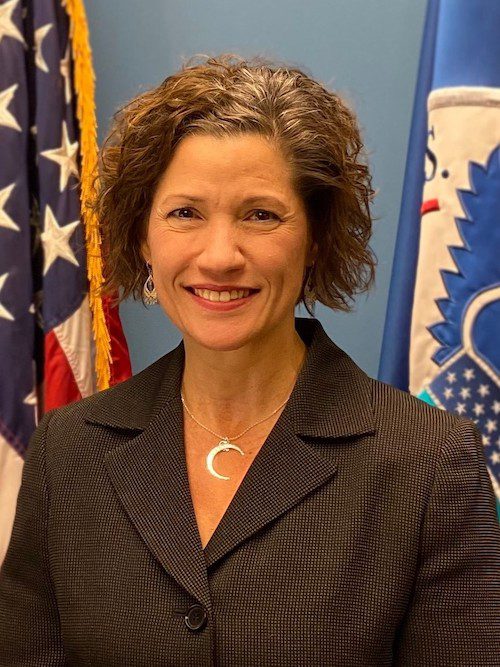
The finalists for WashingtonExec’s Pinnacle Awards were announced Oct. 8, and we’ll be highlighting some of them until the event takes place virtually Nov. 12.
Next is National Security/DHS Government Executive of the Year finalist Stacy Marcott, who’s deputy chief financial officer of the Department of Homeland Security. Here, she talks success, future focus areas and career advice.
What was a turning point or inflection point in your career?
I would not be here today without having the courage to try something different and change the direction of my career. I grew up in a Navy family that moved around the world, and I spent 14 more years serving the Navy as a commissioned officer and as a civilian. Then 9/11 happened, and the administration and Congress wanted to stand up a new agency to protect the homeland.
A mentor of mine suggested that I apply. It was the biggest change of my life and the one that took the most courage. Leaving an environment that I knew and loved, and try something new, is not easy at any stage of your career.
Moving to DHS was the biggest change of my career, it took the most courage, and I have never regretted the move for one second.
What are you most proud of having been a part of in your current organization?
I have been a part of a lot of game-changing advances in the department because of one thing: the people. I am most proud of the super talented men and women I have had the opportunity to help develop, most especially in the Management Directorate. I have seen promising professionals begin their careers and later lead major initiatives. Management is a team sport.
I am especially proud of the financial, IT and procurement communities that have led the Transportation Security Administration’s transition to a modern and integrated financial system. A financial system modernization has been an aspiration dating back to the establishment of the department in 2003.
It has been a long road, to say the least, for a myriad of reasons. TSA joins the Countering Weapons of Mass Destruction Office in using this new solution, and the U.S. Coast Guard is well positioned to begin the journey this year.
Tenacity, teamwork and resilience helped them resolve many challenges, even when some of those challenges were not necessarily in their swim lane.
Which rules do you think you should break more as a government/industry leader?
When people work outside their direct areas of responsibility, they are breaking the traditional stay-in-your swim lane rules. As long as it’s not immoral, unethical or illegal, people should not be afraid to break any rule, to get to the same or better outcome.
Most often, there is a different and better way to do something. So, when you are working on something of significant value to you, strive to be innovative in your approaches, think outside the box, don’t necessarily take the first no for an answer and get outside your swim lane.
What has made you successful in your current role?
There are three qualities a person must have to be successful.
First, be adaptable in all things except your values. Flex with changes in direction, in environment, in approach, and ultimately embrace change.
Second, build your capacity to think strategically. No matter what you are grappling with in the present moment, keep the big-picture mind. Ask yourself and others why you are doing something, and consider other perspectives. Challenge the status quo and allow yourself and others to be innovative. Once you understand the “why” behind something, it’s usually easier to figure out a better “how.”
Third and most importantly, be a servant leader. Caring about and serving others will always lead to successful outcomes for anyone. Small things matter, such as going out of your way for someone just to find them a phone number or to send them a link. Be empathetic and remind yourself the Golden Rule: Treat others as you want them to treat you.
It does not matter what role you fill in any organization — these qualities are necessary in any role, in any organization to be successful.
What’s your best career advice for those who want to follow in your footsteps?
Theodore Roosevelt said something which I think is the best career advice any of us can use: Do more than you think you can, with what you have, where you are — and definitely do more than others think you can.

